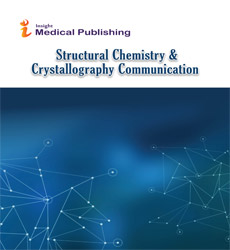Abstract
28 years of nano-pore analysis by NMR Cryoporometry : background, capabilities, comparison with other techniques, instrumentation & protocols, and recent developments.
NMR Cryoporometry (NMRC) is a powerful technique for the measurement of pore-size distributions and total porosities on a pore length scale from sub 1nm to over 1micron. This technique is suitable for measuring poresizes in a wide range of polymers and porous materials, including porous glass, rock, clays and porous carbons including biochar. It offers various advantages over other techniques, including the ability to study wet samples. By swelling rubbers and polymers with added organic liquids cross-link density and nano- to micro-porous properties of the polymer may be obtained. In biochar, progressive changes to the quantity and mobility of hydrocarbons, as well as changes in pore-blocking, as a function of preparation temperature, have been demonstrated. The capabilities of NMRC have in recent years been extended in a number of directions, to greater sensitivity, to sub-nanometric pore sizes (lower temperatures) and to above micron sized pore-sizes (tiny melting point depressions). NMRC has been used to probe the effect of using different probe liquids on measured pore volume. in the nearly 30 years that Lab-Tools have been developing NMRC, the protocols have evolved. The data formats have been formalised, and the programs to access and display the NMRC control variables and results data have been optimised. Some of these protocols are now encoded into Graphical User Interface (GUIs) and their associated process and graph windows.
Author(s):
J. Beau W. Webber
Abstract | PDF
Share this

Google scholar citation report
Citations : 275
Abstracted/Indexed in
- Google Scholar
- China National Knowledge Infrastructure (CNKI)
- Directory of Research Journal Indexing (DRJI)
- WorldCat
- Geneva Foundation for Medical Education and Research
- Secret Search Engine Labs
- CAS (Chemical Abstracting Services)
Open Access Journals
- Aquaculture & Veterinary Science
- Chemistry & Chemical Sciences
- Clinical Sciences
- Engineering
- General Science
- Genetics & Molecular Biology
- Health Care & Nursing
- Immunology & Microbiology
- Materials Science
- Mathematics & Physics
- Medical Sciences
- Neurology & Psychiatry
- Oncology & Cancer Science
- Pharmaceutical Sciences

